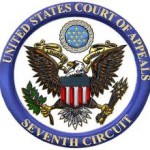 Third Site is a Comprehensive Environmental Response, Compensation and Liability Act (CERCLA) site that was part of a larger area, under common ownership by the Bankerts, used for recycling industrial wastes. Cleanup initially focused on other sites, but in 1987 and 1992 consultants found concentrations of volatile organic compounds; Third Site was transferring pollutants to Finley Creek, which flows to Eagle Creek Reservoir, which supplies Indianapolis drinking water. The creek was realigned. In 1999, the EPA entered into an Administrative Order by Consent (AOC) with potentially responsible parties. Non-Premium Respondents agreed to undertake an Engineering Evaluation and Cost Analysis (EE/CA) of removal alternatives and to settle a trust to bankroll the EE/CA. Premium Respondents, allegedly de minimis contributors, were entitled to settle out with a one-time Trust contribution under 42 U.S.C. 9622(g). Non-Premium Respondents met their obligations. In 2002, the parties entered into a second AOC to perform work described by the Enforcement Action Memorandum: Non-Premium respondents had the same Trust obligations for removal efforts. The Bankerts are Non-Premium Respondents under both AOCs, but have not met their obligations. In 2008, the Trustees sued the Bankerts and their insurers, seeking cost recovery under CERCLA, 42 U.S.C. 9607(a), and Indiana law. One of the insurers argued that its successful litigation in connection with cleanup of the adjoining site precluded a finding of coverage. Entering summary judgment for the Bankerts, the district court construed the CERCLA claim as seeking contribution under 42 U.S.C. 9613(f), and barred by the statute of limitations, so that issues concerning the insurer were moot. The Seventh Circuit remanded reinstated claims under 42 U.S.C. 9607(a)(4)(B), to recover costs incurred under the 2002 AOC and against the insurer. On rehearing, the court clarified that a party responsible for contamination may obtain an immediately effective release from the EPA in a settlement, or it may obtain only a performance-dependent conditional covenant not to sue with an accompanying disclaimer of liability. Whether, and when, a given settlement “resolves” a party’s liability under 42 U.S.C. 9613(f)(3)(B) is case-specific and depends on its terms. In this case, the AOC did not provide for resolution upon entering into the agreement.
Third Site is a Comprehensive Environmental Response, Compensation and Liability Act (CERCLA) site that was part of a larger area, under common ownership by the Bankerts, used for recycling industrial wastes. Cleanup initially focused on other sites, but in 1987 and 1992 consultants found concentrations of volatile organic compounds; Third Site was transferring pollutants to Finley Creek, which flows to Eagle Creek Reservoir, which supplies Indianapolis drinking water. The creek was realigned. In 1999, the EPA entered into an Administrative Order by Consent (AOC) with potentially responsible parties. Non-Premium Respondents agreed to undertake an Engineering Evaluation and Cost Analysis (EE/CA) of removal alternatives and to settle a trust to bankroll the EE/CA. Premium Respondents, allegedly de minimis contributors, were entitled to settle out with a one-time Trust contribution under 42 U.S.C. 9622(g). Non-Premium Respondents met their obligations. In 2002, the parties entered into a second AOC to perform work described by the Enforcement Action Memorandum: Non-Premium respondents had the same Trust obligations for removal efforts. The Bankerts are Non-Premium Respondents under both AOCs, but have not met their obligations. In 2008, the Trustees sued the Bankerts and their insurers, seeking cost recovery under CERCLA, 42 U.S.C. 9607(a), and Indiana law. One of the insurers argued that its successful litigation in connection with cleanup of the adjoining site precluded a finding of coverage. Entering summary judgment for the Bankerts, the district court construed the CERCLA claim as seeking contribution under 42 U.S.C. 9613(f), and barred by the statute of limitations, so that issues concerning the insurer were moot. The Seventh Circuit remanded reinstated claims under 42 U.S.C. 9607(a)(4)(B), to recover costs incurred under the 2002 AOC and against the insurer. On rehearing, the court clarified that a party responsible for contamination may obtain an immediately effective release from the EPA in a settlement, or it may obtain only a performance-dependent conditional covenant not to sue with an accompanying disclaimer of liability. Whether, and when, a given settlement “resolves” a party’s liability under 42 U.S.C. 9613(f)(3)(B) is case-specific and depends on its terms. In this case, the AOC did not provide for resolution upon entering into the agreement.
Bernstein v. Bankert
August 4, 2013 by Leave a Comment
Speak Your Mind
You must be logged in to post a comment.